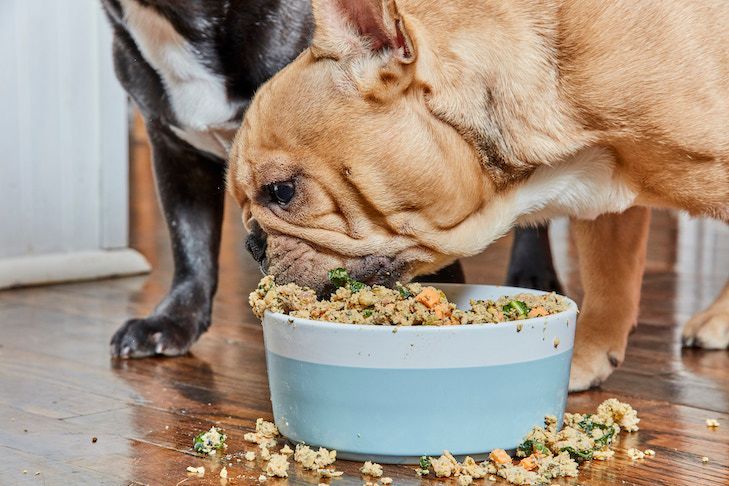Choosing the Right Dog Food for Your Breed: From a Corpus Christi Dog Trainer
Dog Trainer Advice on the Right Food and Amount for Your Breed
As a responsible pet owner, one of the most crucial decisions you'll make for your furry friend is selecting the appropriate dog food. Each breed has its unique nutritional requirements, depending on factors like size, age, activity level, and health status. Understanding these needs and selecting the right food ensures your canine companion thrives with optimal health and vitality.
Different dog breeds have varying nutritional needs based on their size, metabolism, and predisposition to certain health conditions. For instance, large breeds like Great Danes or Mastiffs require diets rich in quality proteins to support their muscle mass and joint health. Conversely, smaller breeds like Chihuahuas or Yorkshire Terriers may benefit from smaller kibble sizes and formulations designed to support their fast metabolism and dental health. Puppies, adults, seniors, and pregnant or nursing dogs all have distinct nutritional requirements. Puppies need higher levels of protein, fat, vitamins, and minerals to support their rapid growth and development. Adult dogs require a balanced diet to maintain their overall health and energy levels. Senior dogs may benefit from diets with reduced calories and specific supplements to support aging joints and cognitive function. Pregnant or nursing dogs need diets with increased calories, protein, and essential nutrients to support both the mother and her growing pups.
Speak With A Dog
Training Expert
Speak With A Dog Training Expert
Thank you for contacting us!
We will contact you shortly!
Please try again later.
Dog Trainer Advice on the Right Food and Amount for Your Breed
As a responsible pet owner, one of the most crucial decisions you'll make for your furry friend is selecting the appropriate dog food. Each breed has its unique nutritional requirements, depending on factors like size, age, activity level, and health status. Understanding these needs and selecting the right food ensures your canine companion thrives with optimal health and vitality.
Different dog breeds have varying nutritional needs based on their size, metabolism, and predisposition to certain health conditions. For instance, large breeds like Great Danes or Mastiffs require diets rich in quality proteins to support their muscle mass and joint health. Conversely, smaller breeds like Chihuahuas or Yorkshire Terriers may benefit from smaller kibble sizes and formulations designed to support their fast metabolism and dental health. Puppies, adults, seniors, and pregnant or nursing dogs all have distinct nutritional requirements.
Speak With A Dog
Training Expert
Speak With A Dog Training Expert
Thank you for contacting us!
We will contact you shortly!
Please try again later.
Puppies need higher levels of protein, fat, vitamins, and minerals to support their rapid growth and development. Adult dogs require a balanced diet to maintain their overall health and energy levels. Senior dogs may benefit from diets with reduced calories and specific supplements to support aging joints and cognitive function. Pregnant or nursing dogs need diets with increased calories, protein, and essential nutrients to support both the mother and her growing pups.
Proper Foods: Dog Training Corpus Christi
The activity level of your dog plays a significant role in determining its caloric needs and nutrient requirements. Working breeds or highly active dogs such as Border Collies or German Shepherds need diets rich in high-quality proteins and fats to sustain their energy levels and support muscle recovery. Conversely, sedentary breeds or dogs with lower activity levels may require fewer calories and a balanced diet to prevent weight gain and maintain optimal health. Certain breeds are predisposed to specific health conditions, such as hip dysplasia in large breeds or dental issues in brachycephalic breeds. Tailoring your dog's diet to address these concerns can help mitigate risks and promote overall well-being. Additionally, some breeds may have food sensitivities or allergies, necessitating a diet free from common allergens such as grains or certain proteins. Consulting with your veterinarian can help identify any dietary restrictions or special considerations for your breed.
When selecting a dog food for your breed, consider factors such as ingredient quality, nutrient content, and
Proper Foods: Dog Training Corpus Christi
The activity level of your dog plays a significant role in determining its caloric needs and nutrient requirements. Working breeds or highly active dogs such as Border Collies or German Shepherds need diets rich in high-quality proteins and fats to sustain their energy levels and support muscle recovery. Conversely, sedentary breeds or dogs with lower activity levels may require fewer calories and a balanced diet to prevent weight gain and maintain optimal health. Certain breeds are predisposed to specific health conditions, such as hip dysplasia in large breeds or dental issues in brachycephalic breeds. Tailoring your dog's diet to address these concerns can help mitigate risks and promote overall well-being. Additionally, some breeds may have food sensitivities or allergies, necessitating a diet free from common allergens such as grains or certain proteins. Consulting with your veterinarian can help identify any dietary restrictions or special considerations for your breed.
When selecting a dog food for your breed, consider factors such as ingredient quality, nutrient content, and feeding guidelines. Look for products that list a high-quality protein source as the first ingredient and avoid fillers or artificial additives. Opt for complete and balanced diets formulated to meet the specific nutritional needs of your breed and life stage. Additionally, consider factors such as taste preferences, texture, and feeding habits to ensure your dog enjoys and thrives on its chosen diet.
Choosing the right dog food for your breed is a vital aspect of responsible pet ownership. By understanding your dog's unique nutritional needs based on its breed, age, activity level, and health status, you can provide a diet that supports optimal health and vitality. Consulting with your veterinarian and carefully selecting high-quality, balanced diets ensures your canine companion receives the nourishment it needs to live a happy, healthy life.
feeding guidelines. Look for products that list a high-quality protein source as the first ingredient and avoid fillers or artificial additives. Opt for complete and balanced diets formulated to meet the specific nutritional needs of your breed and life stage. Additionally, consider factors such as taste preferences, texture, and feeding habits to ensure your dog enjoys and thrives on its chosen diet.
Choosing the right dog food for your breed is a vital aspect of responsible pet ownership. By understanding your dog's unique nutritional needs based on its breed, age, activity level, and health status, you can provide a diet that supports optimal health and vitality. Consulting with your veterinarian and carefully selecting high-quality, balanced diets ensures your canine companion receives the nourishment it needs to live a happy, healthy life.



